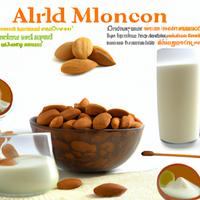
1 serving (240 grams) contains 30 calories, 1.0 grams of protein, 2.5 grams of fat, and 1.0 grams of carbohydrates.

Log this food in SnapCalorie

Nutrition Information
Calories |
30 | ||
|---|---|---|---|
% Daily Value* |
|||
| Total Fat | 2.5 g | 3% | |
| Saturated Fat | 0 g | 0% | |
| Polyunsaturated Fat | 0 g | ||
| Cholesterol | 0 mg | 0% | |
| Sodium | 150 mg | 6% | |
| Total Carbohydrates | 1.0 g | 0% | |
| Dietary Fiber | 0 g | 0% | |
| Sugars | 0 g | ||
| protein | 1.0 g | 2% | |
| Vitamin D | 100.0 mcg | 500% | |
| Calcium | 450 mg | 34% | |
| Iron | 0.7 mg | 3% | |
| Potassium | 160.0 mg | 3% | |
* Percent Daily Values are based on a 2,000 calorie diet. Your daily values may be higher or lower depending on your calorie needs.
Food Attributes
Source of Calories
About Low fat almond milk
Low Fat Almond Milk is a nutritious dairy-free alternative made primarily from finely blended almonds and filtered water. Originating from Middle Eastern cuisine, almond milk has gained popularity worldwide for its light, nutty flavor and versatility in cooking, baking, and beverages. This low-fat variety contains fewer calories and fat compared to whole almond milk, making it a great choice for those looking to manage weight or reduce fat intake. Rich in vitamin E, almond milk supports healthy skin and provides antioxidant benefits. It’s naturally lactose-free, making it suitable for individuals with lactose intolerance or dairy allergies. Commercial brands often fortify almond milk with calcium and vitamin D, enhancing bone health. However, it’s typically low in protein compared to dairy milk, so it may not be ideal as a primary protein source. Unsweetened versions avoid added sugars, offering a healthier choice for everyday consumption.



